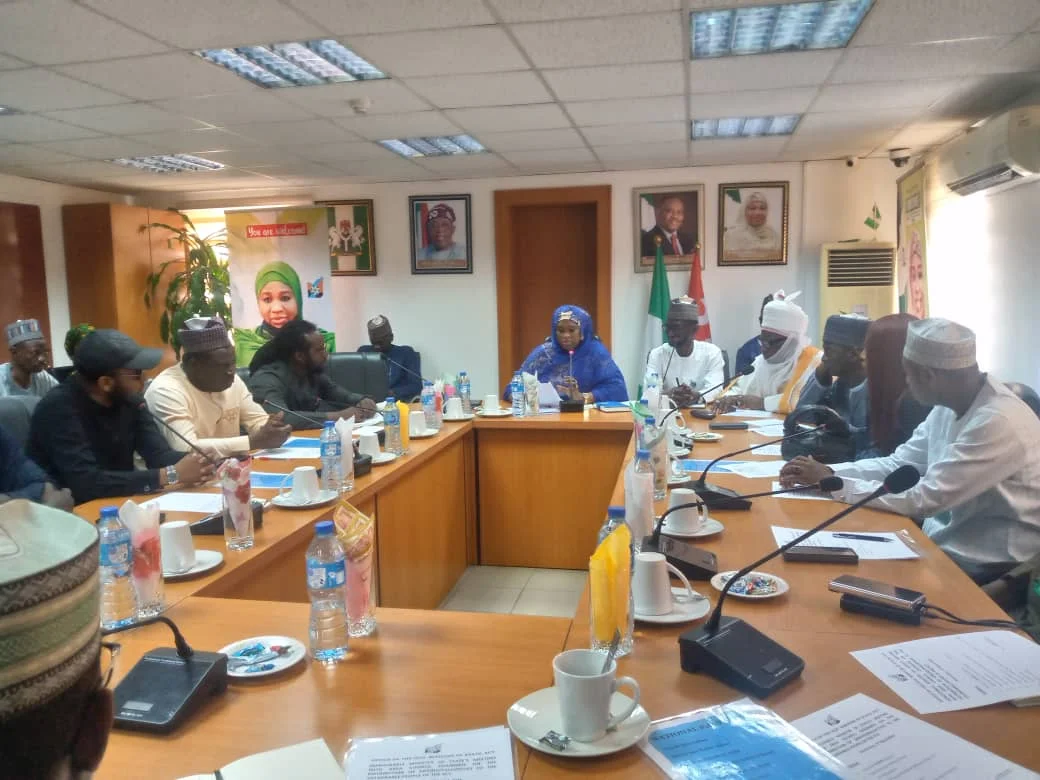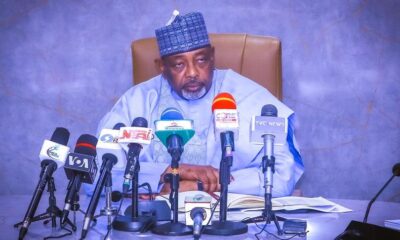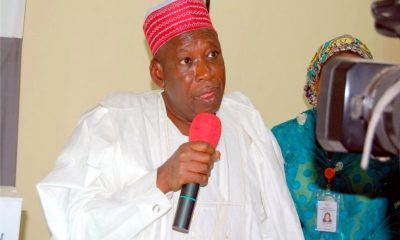Business
FG Committed To Implementation Of 2020 Budget -Akabueze

The Director-General of budget Office, Ben Akabueze, has assured Nigerians that the implementation of the 2020 budget will be better and results driven despite the growing spate of coronavirus plaguing the world today.
Akabueze made this known at the 2020 National Budget Roundtable and Panel Discussion organised by Covenant University in partnership with the Centre for Economic Policy and Development Research and the World University Ranking 2020 top 500 held recently at CUCRID, Covenant University, Ogun State.
Akabueze, who was represented by the Technical Adviser to the Director General, Budget Office of the Federation, Olumide Ayodele, said that the Federal Government’s resolve to fully implement the 2020 budget is not negotiable.
“We will continue to ensure that the economy stays on a growth trajectory whilst making strategic investments in critical infrastructure and human capital to spur further economic growth. We hope to implement the 2020 Budget 100%. We have released N220 billion of the 2020 MDA capital to sectors requiring funds in the dry season. Sectors like Agriculture will be prioritized during the raining season.”
Akabueze posited that Nigeria has had eleven consecutive quarters of positive growth since the exit from recession, though levels remain below desirable targets, adding that highest quarterly growth of 2.55% in Q4 2019.
“We will continue to deepen our non-oil sector performance with non-oil GDP at over 93% of GDP as at Q4 2019. We have made unprecedented progress with social investment programmes and are innovating ways of funding infrastructure,” he said.
Although, he noted that Nigeria currently has huge infrastructural gap as infrastructure investments in in the country have been insufficiently financed with public funds.
“The investments required to bridge the gap are clearly beyond the means available to government. Hence, it has become imperative to look beyond government finances for the country to have any hope of achieving its full development potential”, he said.
The DG of Budget Office who noted that the fiscal budget is a key tool for implementing government development agenda, said it designed to achieve social, economic and political objectives.
“Nigeria’s public investment requirements by far exceed available financial resources. Nigeria is not an oil rich economy. We will ensure that funds are allocated to projects and programmes likely to deliver maximum benefits relative to their costs,” he said.
Earlier, the Chairman of the Centre for Economic Policy and Development Research, Prof. Evans Osabuohien, had said the rising debt profile of the country was destroying the economy.
The Professor of Economics, who expressed shock at the Federal Government’s recent plans to borrow $22.7bn, said government must count the cost of its continuous borrowing habit
“One of the highlights of the joint sessions of the International Monetary Fund and the World Bank in October 2019 was that the debt profile of many developing countries, including Nigeria, is rising. Despite all these, it is shocking to know that the Federal Government of Nigeria is planning to borrow $22.7bn. This will further increase the volume of Nigeria’s debt.”
Business
NCDMB Tasks Media Practitioners On Effective Reportage

Business
FCTA, Others Chart Path To Organic Agriculture Practices

The Federal Capital Territory Administration (FCTA) and other stakeholders have charted path to improved organic agriculture practices nationwide.
At a 2024 national organic and agroecology business summit held recently in Abuja, stakeholders took turn to speak on the additional areas of promoting the practices.
The Mandate Secretary, FCT Agriculture and Rural Development Secretariat (ARDS), Lawan Geidam, advocated for sustainable practice to develop resilient food systems that will benefit people.
The event, with the theme,”Towards Policies for Upscaling Organic Agroecological Businesses in Nigeria”, is aimed at fostering growth in the organic agriculture sector.
Geidam, who was represented by the Acting Director, Agric Services, in the Secretariat, Mr. Ofili Bennett, emphasised the success of organic and agroecological farming, reling on the active involvement of farmers, businesses and consumers.
He reassured attendees that the FCT Administration, led by the Minister, Nyesom Wike, and Minister of State, Dr. Mariya Mahmoud, remains dedicated to supporting initiatives that enhance the livelihood of residents.
Geidam described the partnership between the Secretariat and the organic and Agroecology initiative for a monthly exhibition and sale of organic products in the FCTA premises as a testament to this commitment.
“The ARDS remains committed to driving policies and initiatives that align with national goals and global standards”, Geidam said.
On her part, the Chairperson of Organic and Agroecology Initiative, Mrs. Janet Igho, urged residents to embrace healthy eating habits to sustain a good lifestyle. She stressed the importance of adopting organic practices, highlighting the benefits of going organic, growing organic and consuming organic products.
Igho expressed her optimism regarding the Agricultural Revival Programmes as articulated in President Bola Ahmed Tinubu’s “Renewed Hope Agenda”, which aims at fostering food and nutrition security.
She also extended her gratitude to ARDS for graciously allocating a space in the FCTA premises for the exhibition and sale of organic products, noting that the platform has been effectively used to advance the promotion of organic agriculture in FCT.
Igho outlined several benefits of organic agriculture which includes improved soil health, increased biodiversity, availability nutritious and healthy food and a reduced carbon footprint.
Stakeholders at the summit, underscored the critical need for enhanced private sector involvement and robust capacity building initiatives for farmers.
They highlighted the importance of implementing supportive policies to foster the growth of the organic agriculture sector.
In the light of the significant challenges facing Nigeria’s agricultural landscape, stakeholders decided that organic agricultural practices present sustainable solutions and a pathway for a more resilient and productive farming systems.
The three-day summit featured exhibitions showcasing organic foods, fruits, vegetables and fertilizers, providing an opportunity for residents to better appreciate the benefits of production and consumption of organic agricultural products.
Business
Dangote Refinery Exports PMS to Cameroon

-

 News4 days ago
News4 days agoStakeholder Hails Fubara Over Ekpeye Chieftaincy Title
-

 Business8 hours ago
Business8 hours agoNADF, NASC Partner To Boost Food Security
-

 Politics5 hours ago
Politics5 hours agoGanduje Gets February 13 Date For Hearing In Alleged Bribery Trial
-

 Opinion4 days ago
Opinion4 days agoChild Rape: A Global Menace
-

 Maritime4 days ago
Maritime4 days agoMOWCA, NIMET Collaborate On W’Africa Maritime Safety
-
Sports6 hours ago
Football Panacea For Peace, Creates Good Relationship – LG Boss
-
Nation4 hours ago
Senate Summons Wike Over Demolition Of Houses …Set To Investigate FCDA Activities
-

 Politics4 days ago
Politics4 days agoAfter S’Court Victory, It’s Time To Work, Soludo Urges APGA

